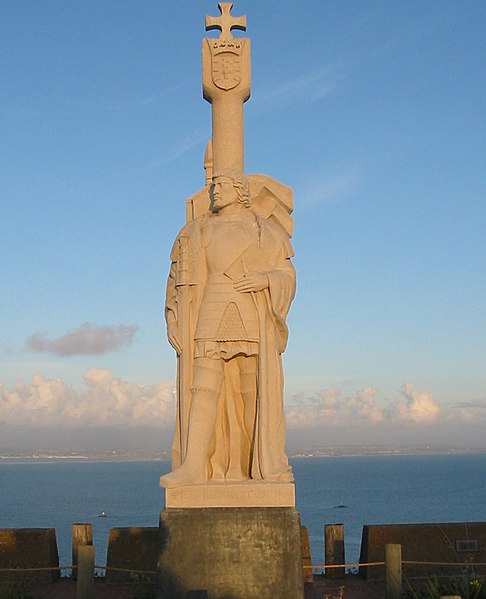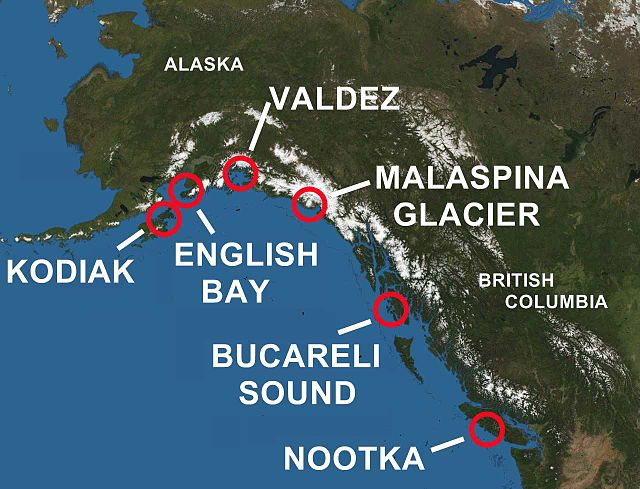Juan Rodríguez Cabrillo was an Iberian maritime explorer best known for investigations of the West Coast of North America, undertaken on behalf of the Spanish Empire. He was the first European to explore present-day California, navigating along the coast of California in 1542–1543 on his voyage from New Spain.
Posthumous depiction of Cabrillo
Monument to Cabrillo in Montalegre, Portugal traditionally considered to be his hometown.
Cabrillo National Monument at Point Loma in San Diego, California. It was donated to the state of California in 1939 by the Portuguese government.
Replica of Cabrillo's tombstone at the Maritime Museum of San Diego.
History of the west coast of North America
The human history of the west coast of North America is believed to stretch back to the arrival of the earliest people over the Bering Strait, or alternately along a now-submerged coastal plain, through the development of significant pre-Columbian cultures and population densities, to the arrival of the European explorers and colonizers. The west coast of North America today is home to some of the largest and most important companies in the world, as well as being a center of world culture.
Vasco Núñez de Balboa claiming possession of the Pacific Ocean and the lands that touch it.
Spanish contact in British Columbia and Alaska
A billboard for a marijuana dispensary in Washington. Washington was one of the first two states to legalize the plant, and California is home to the largest cannabis producing region in the country.







